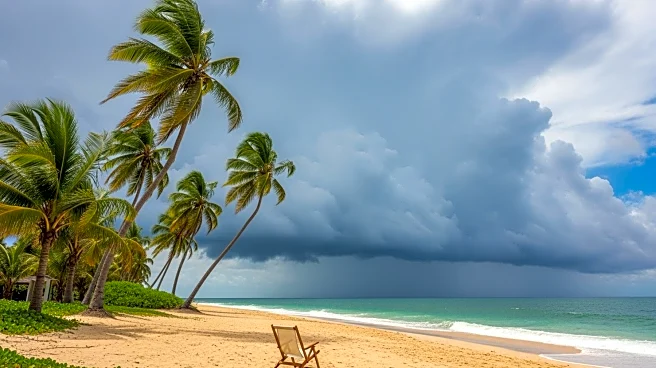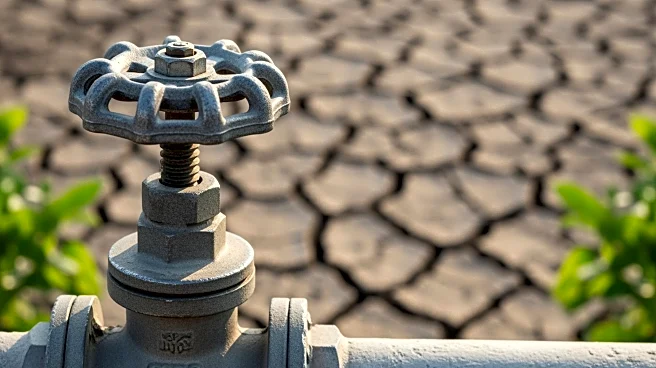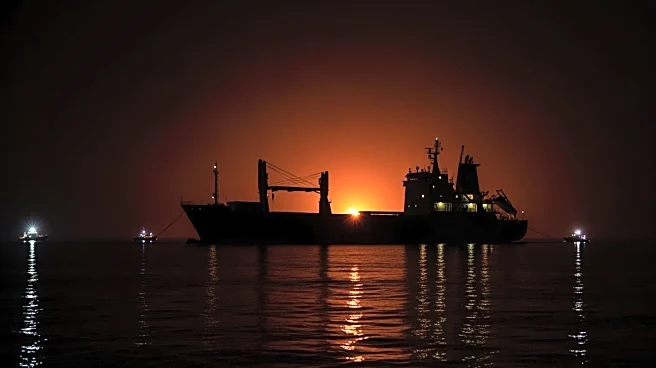What's Happening?
Jamaican authorities are urging residents to evacuate to higher ground and shelters as Hurricane Melissa, a Category 5 storm, approaches the island. The hurricane, which is expected to make landfall on
Tuesday, has already caused fatalities in Jamaica, Haiti, and the Dominican Republic. The US National Hurricane Center reports that Melissa is approximately 115 miles from Kingston, with maximum wind speeds of 175 miles per hour. The storm's slow movement is causing concern, as it could lead to prolonged destructive conditions similar to past hurricanes like Maria and Katrina. Jamaican Prime Minister Andrew Holness has warned of potential massive devastation, particularly in the island's western regions, and emphasized the importance of evacuation for saving lives.
Why It's Important?
The arrival of Hurricane Melissa poses a significant threat to Jamaica, with potential impacts on infrastructure, agriculture, and the local economy. The storm's intensity and slow pace could lead to extensive damage, power outages, and communication disruptions. The Jamaican Red Cross is actively distributing supplies, but the reluctance of some residents to evacuate highlights challenges in disaster preparedness and response. The situation underscores the broader issue of climate change, which scientists say is contributing to the increased frequency and severity of such storms. The potential for widespread destruction could necessitate international aid and long-term recovery efforts.
What's Next?
As Hurricane Melissa approaches, Jamaican officials continue to urge evacuation and prepare for emergency response. The storm is expected to cross over eastern Cuba after impacting Jamaica, potentially affecting other Caribbean nations. The focus will be on mitigating damage and ensuring the safety of residents, with the Jamaican government and international organizations likely to coordinate relief efforts. The aftermath of the hurricane may prompt discussions on improving infrastructure resilience and disaster management strategies in the region.
Beyond the Headlines
The impact of Hurricane Melissa may lead to increased scrutiny of climate change policies and the need for sustainable development practices in vulnerable regions. The storm's devastation could serve as a catalyst for international cooperation on climate action and disaster preparedness. Additionally, the reluctance of some residents to evacuate highlights socio-economic factors that influence disaster response, such as trust in government shelters and past experiences.








